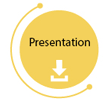J.O.S consultancy
Bio statement :
Country : NL
Contact : jonkhof@xs4all.nl
Website : http://www.jonkhof.eu/J.O.S/J.OS.html
Landscape is a constant process of evolution, generated by both autonomous as antropogenetic processes. On the societal agenda there is fortunately still enough space for reflection on the phenomenology of this evolution, and on the ways society can act to adapt to its specific appearances, an act of culture, by designing its habitat: sustainable forms of urban and rural development, connective infrastructure, and sound physical conditions for life. Within the domain of scientific research for instance, we can use the offered spatial opportunities and reveal the products of this cultural evolution, by flying over several domains of reflections.
For instance:
- Comparing the evolution of landscape with the evolution of language appears to open fascinating horizons, especially in the international IENE audience. Vocabulary as a tool for communication in research, design, policy development. Examples: landscape, structure, pattern, system, plan, design, policy. (References: Shama, Luginbühl, Schroevers, Hoekstra, Van Leeuwen)
- Comparing attitudes in research schools as practiced in different countries can lead to the revelation of different cultures in looking at Landscape and at society interfering in Landscape evolution. Example 1: the use of concepts in research and development, the case of the Randstad. (References: Zonneveld, Hofstede, Delbaere) Example 2: the National Ecological Network, a concept both structuring the research capacity of the scientific programmes in the Netherlands as articulating conservational and developmental policies. (References: Alterra / WageningenUR).
- Comparing Landscape affecting policies reveals different attitudes and societal energy and it articulates different perspectives for the future. Listing recent public initiatives reveals a common sense of urgency to focus on innovative forms of research, conceptual design and institutional adaptation as well as it enables us to learn from different views and practices.
References: the Plan d’action pour la reconquête des paysages et la place de la nature en ville (MEDDE, France); the National Perspective on spatial environment (Department of Infrastructure and Environment, The Netherlands); the Project Room for the River (Rijkswaterstaat, national agency for water management).
Landscape evolution, antropogenetic processes,
